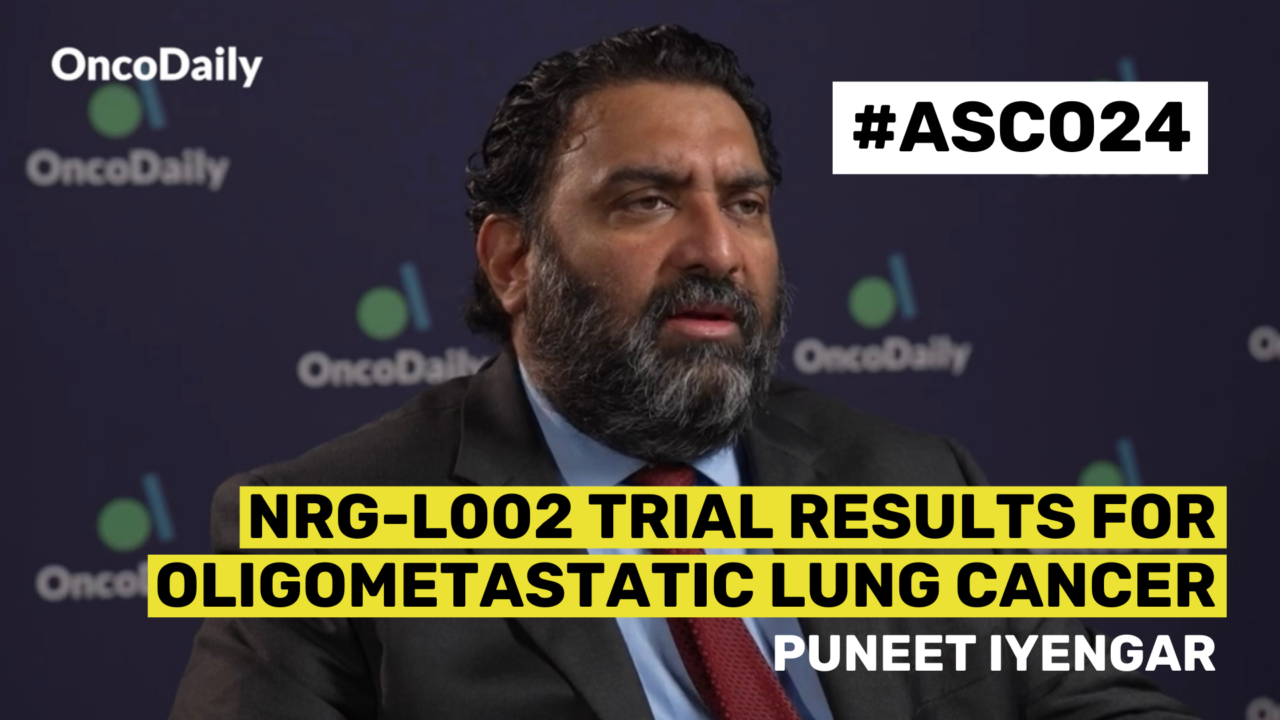The American Society of Clinical Oncology (ASCO) Annual Meeting is one of the largest and most prestigious conferences in the field of oncology. This year, the meeting took place from May 31 to June 4 in Chicago, Illinois. The event gathers oncologists, researchers, and healthcare professionals from around the world to discuss the latest advancements in cancer research, treatment, and patient care. Keynote sessions, research presentations, and panel discussions are typically part of the agenda, providing attendees with valuable insights into emerging trends and innovations in oncology.
This year, OncoDaily was at ASCO 2024 for the first time covering the meeting on-site. We had the pleasure of interviewing researchers who summarized the highlights of their work.
In this video, Dr. Puneet Iyengar, Director of the Metastatic Service at Memorial Sloan Kettering, shared insights on ‘NRG-LU002: Randomized phase II/III trial of maintenance systemic therapy versus local consolidative therapy (LCT) plus maintenance systemic therapy for limited metastatic non-small cell lung cancer (NSCLC).‘
Hi, my name is Puneet Iyengar and I’m an attending and director of the metastatic service in the Department of Radiation Oncology at Memorial Sloan Kettering Cancer Center. I was privileged this week at ASCO 2024 to present the NRG-L002 trial initial results. It was a phase 2-3 study looking to see whether the addition of local consolidative therapy to maintenance systemic therapy improved survival outcomes in oligometastatic non-small cell lung cancer patients.
Very briefly with respect to background, historically radiation has been used in palliation for advanced non-small cell lung cancer patients, but over the course of the last 30 or 40 years there’s been an increasing effort because of better imaging, better systemic therapy, and better radiation techniques to use radiation to improve not just palliative symptoms but also survival in oligometastatic non-small cell lung cancer patients.
So our study was a phase 2-3 study to look at this question. After 215 patients had been randomized, the study was closed due to not meeting a pre-specified endpoint for improvement in PFS with the experimental arm.
Nonetheless, what we found was that when we took patients that received only maintenance systemic therapy after their first therapy versus looking at patients that got consolidative local therapy in the form of radiation and or surgery plus maintenance systemic therapy, the experimental arm or the latter arm had a similar progression-free survival that was statistically no different than the control arm and a similar statistically equivalent overall survival outcome as the control arm.
So overall the study suggested that the addition of local therapy in this trial in patients receiving immunotherapy-based systemic therapy did not improve progression-free survival and overall survival.
One explanation could be that the radiation caused a slightly increased toxicity signal, but there’s many other subset analyses we need to do that may highlight a subset of patients that may actually have benefited from the addition of local therapy to their systemic therapy regimens in the advanced non-small cell lung cancer setting for oligometastatic disease.
More videos and content from ASCO 2024 on OncoDaily.


